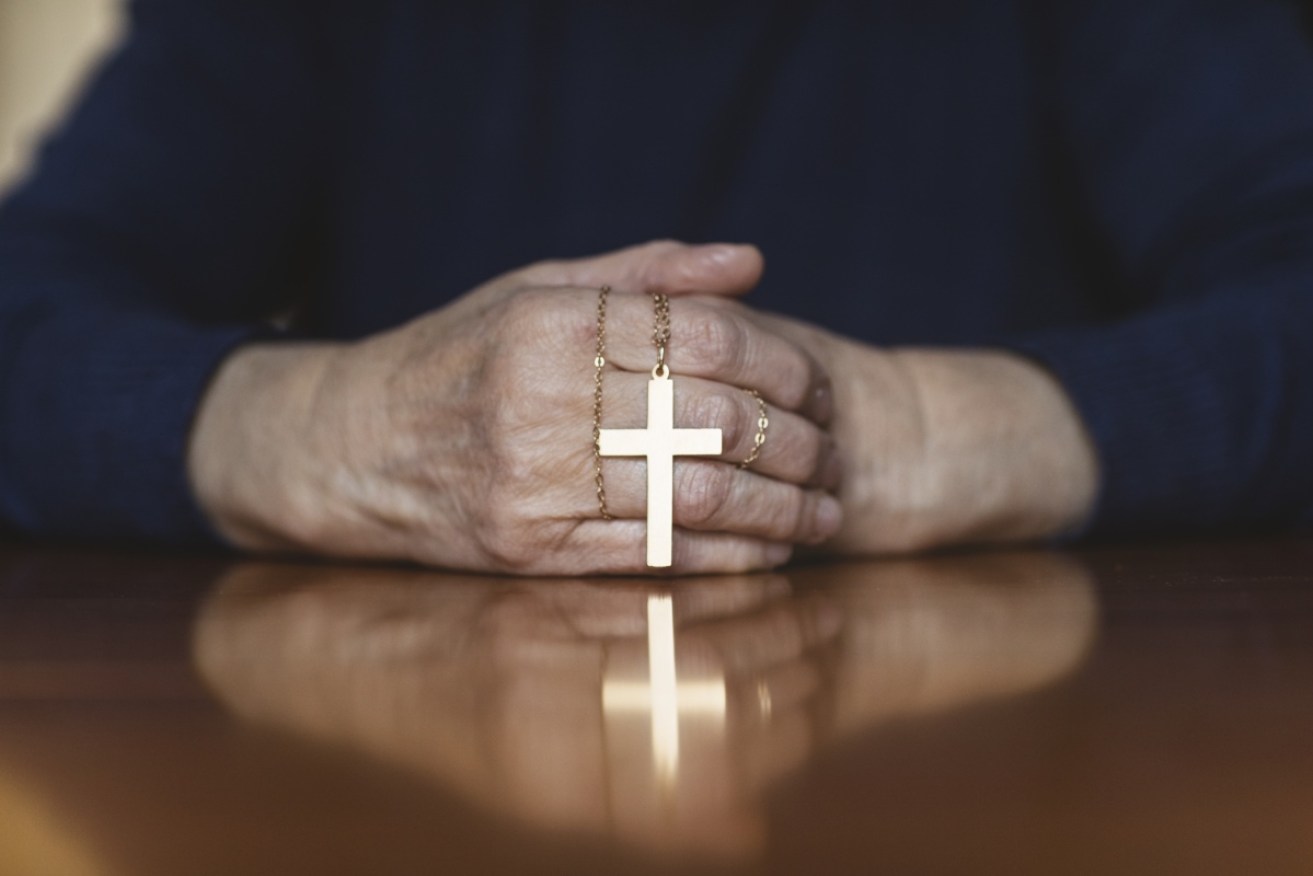Unholy thoughts: Why I decided to give up on God


Chris Ogge grew up Catholic but is done with it after a friend's recent death at 48. Photo: Getty
Days after Christmas I went to the funeral of a friend who died of an insidious cancer that receives virtually no funding and rarely anyone survives. She’d just turned 48.
Brigitte and I were very close in our teens – I was spellbound by her chaotic glamour – but as adults we lost contact until she found me on Facebook four years ago.
Like me, she’d drifted a bit before finding the love of her life, marrying and having seven beautiful kids. Brigitte told me the upside of facing her mortality was she’d done everything she ever wanted to.
Except one thing, and on being diagnosed she made that happen too.
She didn’t retreat into the shadow of treatments and sorrow: she made her last dream come true and moved to a farm on the Mornington Peninsula. She filled it with her kids, her beloved animals – she’d fostered and found homes for over 150 rescue dogs – and an ongoing generosity of spirit.

Brigitte (centre, in white) with her husband Campbell and their children (from left) Hugo, Tully, Matilda, Indigo, Natalie and Finn in May 2016. Photo: Gina Walters
In October, Brigitte hung her barn with lanterns, called in food trucks and threw a Day of the Dead party to farewell friends and raise money for cancer research.
In a curly brown wig and blue vintage dress with bell sleeves, she sat in a cane throne, watching loved ones and making memories.
The next time we all gathered was for her funeral. There were two things about the day that were unforgettable.
One was how beautiful Brigitte looked, in an open white coffin overlooking the farm dam, dressed in a Gorman floral silk dress from her husband, diamonds winking on her fingers.
The second was the complete absence of organized religion in the ceremony, held under a canopy of giant, swaying gum trees. Goats and geese wandered about as a slide show of Brigitte’s life – flashing happiness in a wedding dress, watching the sky with her pet donkey, laughing hugely in a pack of summery kids – played to the tune of The Rainbow Connection.
There was an acoustic version of A-ha’s Take on Me. Her cousin sang Throw Your Arms Around Me as her husband, in a perfectly rumpled linen shirt, mashed his children to him. Her daughters read a favourite poem. The dress code was ‘garden bright with flower crowns’.
But there was no mention of God, or how her death was all part of His plan.
The spirituality of the day was all about the life force she’d been and what she gifted to those in her world.
Like me, Brigitte went to a private school. Hers was Anglican. Mine was Catholic, run by Christian Brothers. The memories I have of that schooling are numerous and uniformly awful.
There are the vivid ones, like getting the strap because I was left-handed – a sign of the devil! – and those that are more mundane but equally as off-putting.
The daily sermons that were thinly veiled threats to make sure we knew that if we wanted to go straight to Heaven we’d damn well better make sure we did unto others as we would have them do unto us.
The repeated missives that unless we lived our lives in the image of Christ, and regularly confessed our sins begging for forgiveness, we would burn in Hell for eternity. Or, if you were really bad, longer.

Brigitte with her beloved donkey Taco. Photo: Gina Walters
As I grew older, I came to the conclusion that if God did exist, and I was hauled before the tribunal on judgement day, I’d be a good chance of beating the rap by claiming diminished responsibility. I was young! I was drunk! I thought you weren’t looking!
I’ve always had the utmost respect for those who have strong faith and continue to worship their gods, not just trotting them out when they win the best supporting actress Oscar or sink the putt that won them the US Open.
Maybe I’m even a bit envious of the strength they draw on during really bad times, the kind of strength I lacked when I lost both my parents to cancer within 18 months.
But after nearly 50 years of occasionally paying lip service to God, I’m officially done with it forever.
The epiphany came at Brigitte’s funeral. What struck me was the validation of what I’ve believed, in my heart, for as long as I can remember.
Practising a system of ethics based on the promise of a reward, in this case the afterlife, is not only self-serving but ideologically repugnant.
The reward for living your life the right way – in Brigitte’s case, adorned with enormous amounts of love, friendships, and the joy of having beautiful children with a man she adored – is simply that it’s the right thing to do.
Her legacy didn’t leave with her.








